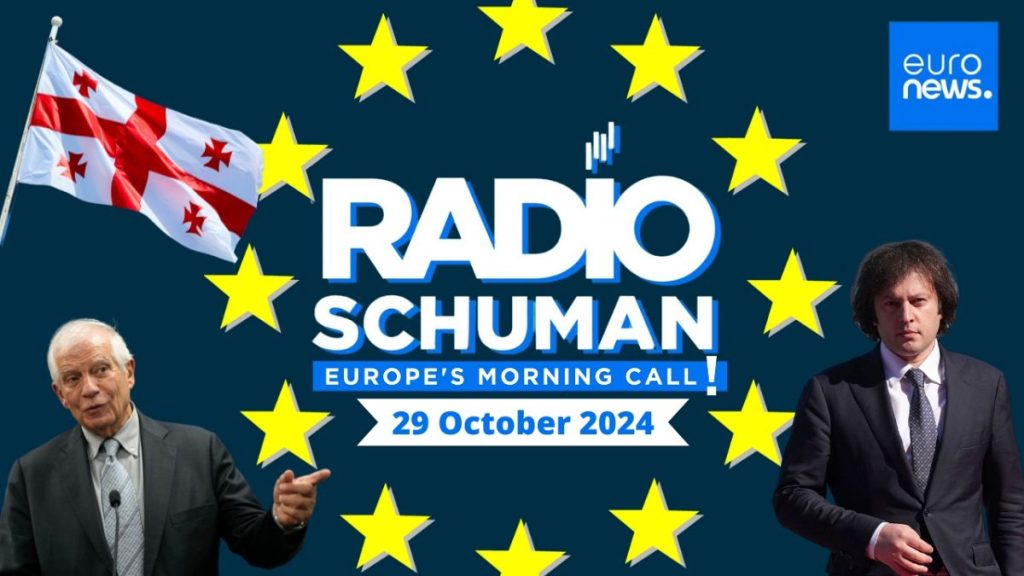After recent elections in Georgia, EU High Representative Josep Borrell called on Georgian authorities to address reports of electoral irregularities and implement necessary reforms. The election victory of the Georgian Dream party was marked by irregularities that were denounced by the opposition and EU observers, leading to growing mistrust between Brussels and Tbilisi. Borrell specifically highlighted the need to address electoral irregularities and implement reforms in Georgia. Two controversial laws in Georgia, the “foreign agents” law and a law limiting LGBTQ rights, have sparked significant debate in Brussels. Many officials in Brussels have expressed concerns that Georgia may drift further away from its EU aspirations if the ruling Georgian Dream party continues to adopt legislation that is seen as contradictory to European values. The EU has frozen Georgia’s accession path and European Commission officials have halted meetings with high-ranking Georgian officials until these issues are addressed. The political crisis in Georgia coincides with the launch of the EU’s enlargement package, highlighting the need for candidate countries to align with EU standards in order to move closer to membership.
Dionis Cenusa, a political analyst at the Lithuanian-based think tank Eastern Europe Studies Centre, discussed the situation in Georgia with Radio Schuman. He noted that the recent election in Georgia, marred by irregularities and controversy, has led to a deepening mistrust between the EU and Georgia. Cenusa highlighted the need for Georgia to address electoral irregularities and implement necessary reforms to avoid drifting further away from its EU aspirations. The two controversial laws in Georgia, the “foreign agents” law and the law limiting LGBTQ rights, have caused concern in Brussels and have led to the freezing of Georgia’s accession path to the EU. Cenusa emphasized the importance of Georgia taking steps to address these issues in order to maintain its relationship with the EU and move closer to candidate status.
The current situation in Georgia has raised questions about whether the country is on track to become the EU’s new nightmare. The election victory of the Georgian Dream party, coupled with controversial laws and electoral irregularities, has strained the relationship between Brussels and Tbilisi. The EU has called on Georgian authorities to address these issues and implement reforms in order to maintain progress towards EU membership. The freezing of Georgia’s accession path and the halt of meetings between European Commission officials and Georgian counterparts underscore the seriousness of the situation. The launch of the EU’s enlargement package also emphasizes the need for candidate countries to align themselves with EU standards. The future of Georgia’s relationship with the EU hinges on the country’s ability to address these issues and demonstrate a commitment to European values.
In other news, Radio Schuman briefly discussed French President Macron’s visit to Morocco and its implications for EU policies on migration. Macron’s visit highlighted the importance of cooperation between the EU and North African countries on issues such as migration and security. The visit underscored the need for a coordinated approach to address migration challenges and highlighted the role that countries in North Africa can play in managing migration flows. The discussions between Macron and Moroccan officials are indicative of the EU’s efforts to work with its neighbors on issues of mutual interest and concern, such as migration.
In the final segment of Radio Schuman, the show explored which Europeans are most likely to live with their parents. This topic delves into social and cultural norms around living arrangements in Europe and examines factors that may influence individuals’ decisions to live with their parents. The segment offers insights into the prevalence of multigenerational households in Europe and provides context on the varying living situations across the continent. By highlighting trends in living arrangements, the segment sheds light on broader societal patterns and attitudes towards family dynamics in Europe. The discussion adds a lighthearted touch to the show and offers a glimpse into the diversity of living arrangements across Europe.
Overall, today’s Radio Schuman covered a range of topics, from the political crisis in Georgia to Macron’s visit to Morocco and Europeans’ living arrangements. The discussions highlighted key issues facing the EU and its member states, including the need for candidate countries to align with EU standards, the importance of cooperation on migration issues, and social trends in Europe. The show provided a comprehensive overview of current events and societal issues, offering listeners a deeper understanding of the complex dynamics shaping the European landscape.


